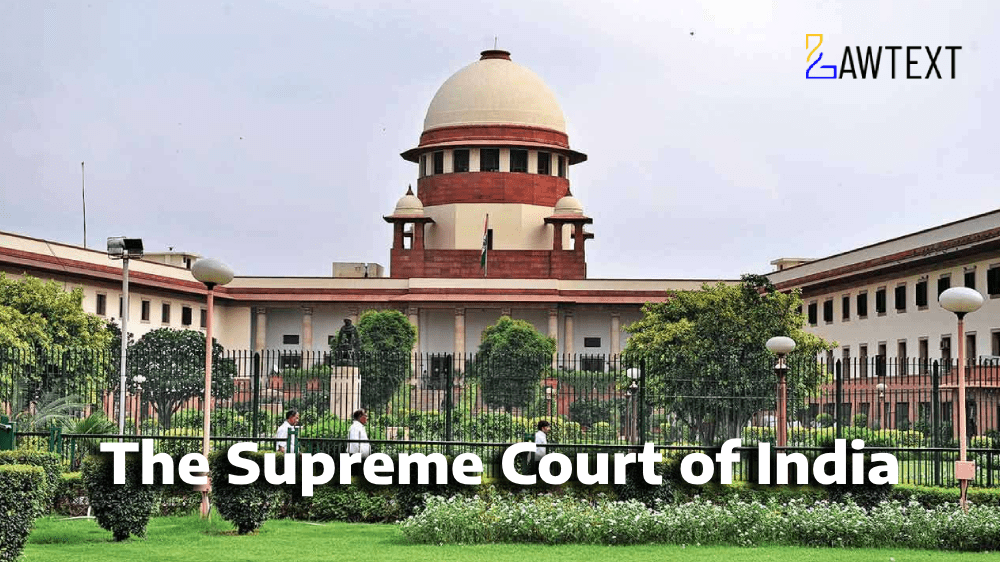

Constitution of India, 1950 Article 14 – Right to equality – Violation of procedural fairness – Absence of notice and opportunity to be heard – Held, procedural fairness is a fundamental right and cannot be bypassed – Para 25, 28, 41, 46. Article 311 – Safeguards for civil servants – Requirement of notice before termination – Applicable principles in public employment – Para 50, 55.
Civil Procedure Code, 1908 (CPC) Order 1, Rule 10 – Necessary parties – Non-impleadment of affected candidates – Held, affected parties must be given an opportunity to be heard – Para 32, 52.
Madhya Pradesh Panchayat Shiksha Karmis (Recruitment and Conditions of Service) Rules, 1997 Rule 9 – Mandatory requirement of notice and hearing before cancellation of appointments – Violation of statutory provisions – Held, non-compliance vitiates the order – Para 33, 48.
Madhya Pradesh Panchayat Raj Adhiniyam, 1993
Rule 40 – Show-cause opportunity before removal from office – Violation – Held, failure to provide opportunity renders the order invalid – Para 54.
Judicial Precedents
A.K. Kraipak v. Union of India, 1969 AIR SC 150 – Principle of bias in selection committees – Applied – Para 7, 13, 16.
SL Kapoor v. Jagmohan, 1981 AIR SC 136 – Right to fair hearing – Prejudice presumed when hearing is denied – Applied – Para 19, 43.
Bank of Patiala v. SK Sharma, 1996 (3) SCC 364 – Distinction between no hearing and inadequate hearing – Applied – Para 19, 45.
Leary v. National Union of Vehicle Builders, 1971 (1) All ER 1001 – Appellate remedy cannot cure defective initial proceedings – Applied – Para 22, 58.
Institute of Chartered Accountants v. L.K. Ratna, 1986 AIR SC 537 – Fair trial at initial stage is mandatory – Applied – Para 22, 63.
Madhyamam Broadcasting Ltd. v. Union of India, 2023 AIR SC 298 – Procedural fairness is a standalone right – Applied – Para 30.
Key Issues:
a) Whether the selection process was vitiated due to bias – Held, mere suspicion of bias without direct influence is insufficient – Para 9, 14.
b) Whether the right to a fair hearing was violated and whether prejudice must be shown – Held, denial of hearing itself constitutes prejudice – Para 36, 42, 47.
c) Whether an appellate hearing can cure the defect of lack of initial hearing – Held, a flawed initial process cannot be remedied at the appellate stage – Para 56, 60, 68.
Bias Allegation – Members of the selection committee recused themselves when their relatives were considered – Held, recusal mechanisms mitigate concerns of bias – Para 14, 27.
Procedural Fairness – Collector’s cancellation of appointments without issuing notice – Held, a fundamental violation of natural justice – Para 5, 17, 55.
Appellate Remedy – State argued appellate stage hearing was sufficient – Rejected – Held, fairness must be ensured at the initial stage itself – Para 56, 69.
Acts and Sections Discussed:
Madhya Pradesh Panchayat Shiksha Karmis (Recruitment and Conditions of Service) Rules, 1997
Madhya Pradesh Panchayat Raj Adhiniyam, 1993 – Rule 40
Appeal & Revision Rules, 1995 – Rule 5(b), Rule 9
Subjects: Natural Justice, Rule Against Bias, Right to Fair Hearing, Nemo Judex in Causa Sua, Audi Alteram Partem, Procedural Fairness, Ex Parte Decision, Administrative Law, Appellate Remedy, Recruitment Rules, Recusal Mechanism.
Facts:
Nature of the Litigation:
The case concerns the legality of the appointment and subsequent cancellation of Shiksha Karmi Grade III teachers in Janpad Panchayat, Gaurihar, Madhya Pradesh, in 1998.
Who is Asking the Court and for What Remedy?
The appellants, candidates whose appointments were canceled, sought restoration of their positions, arguing a violation of their right to a fair hearing.
Reason for Filing the Case:
The Collector canceled appointments in June 1999 due to allegations of bias and nepotism, without affording a hearing to the affected candidates.
What Has Been Already Decided Until Now?
The Commissioner upheld the Collector’s decision.
The Madhya Pradesh High Court upheld the cancellation, relying on A.K. Kraipak v. Union of India.
A two-judge bench of the Supreme Court split in their verdict, necessitating a larger bench hearing.
Submissions/Arguments:
Appellants:
Bias was not proven as selection committee members recused themselves where required.
The ex parte cancellation violated procedural fairness as affected candidates were not heard.
Appellate remedies cannot rectify the lack of an initial fair hearing.
Respondents (State):
Bias was inherent due to close relationships among committee members.
A hearing at the appellate stage sufficiently cured any earlier defects.
Upholding cancellation was necessary to maintain public trust in the recruitment process.
Decision:
The Supreme Court ruled in favor of the appellants, holding that the lack of a fair hearing at the initial stage vitiated the cancellation of appointments.
The appointments were restored, and the orders of the Collector, Commissioner, and High Court were set aside.
Ratio Decidendi:
Principle of Audi Alteram Partem:
Affected candidates must be heard before adverse action is taken; failure to provide notice is a fundamental violation of natural justice.
Rule Against Bias vs. Fair Hearing:
The mere suspicion of bias does not automatically invalidate a selection unless it demonstrably influenced the process.
Recusal mechanisms sufficiently mitigate bias concerns in small jurisdictions where complete detachment is impractical.
Defective Initial Proceedings Cannot Be Cured by Appeal:
A later appellate remedy cannot substitute a fair hearing at the initial stage.
Ex parte cancellations without due process cannot stand.
Final Outcome:
The appeals were allowed.
The appointments were restored.
The Collector’s and Commissioner’s orders were nullified.
The High Court’s ruling was overturned.
Citation: 2025 LawText (SC) (1) 294
Case Number: CIVIL APPEAL NO(S). 4806 OF 2011 WITH CIVIL APPEAL NO. 4807 OF 2011 CIVIL APPEAL NO. 4808 OF 2011 CIVIL APPEAL NO. 4809 OF 2011
Date of Decision: 2025-01-29
Case Title: KRISHNADATT AWASTHY VERSUS STATE OF M.P.. & ORS.
Before Judge: [HRISHIKESH ROY J. , SUDHANSHU DHULIA J. , S.V.N. BHATTI J. ]
Appellant: KRISHNADATT AWASTHY
Respondent: STATE OF M.P.. & ORS.